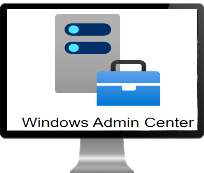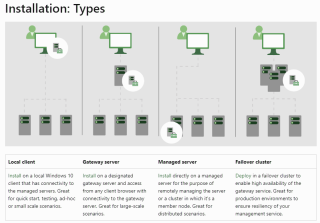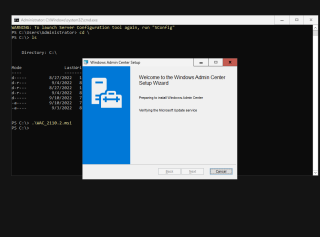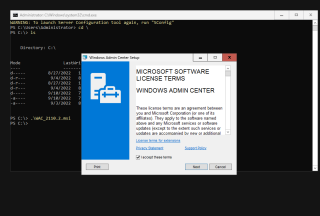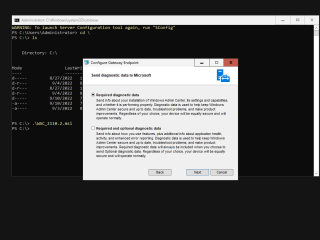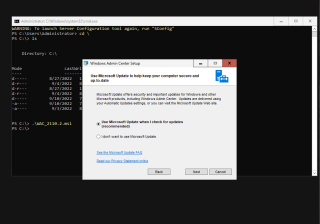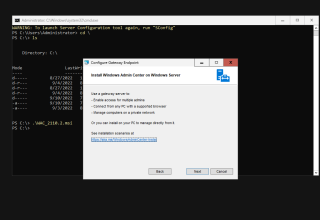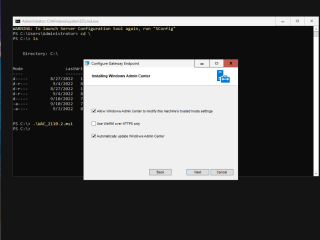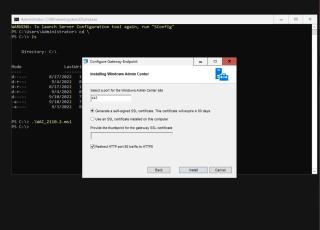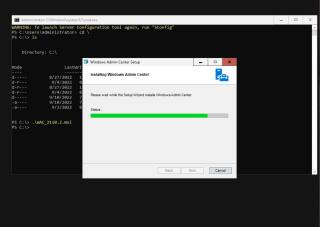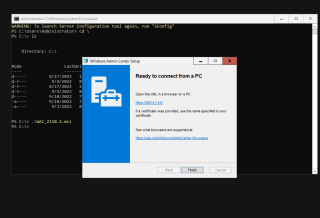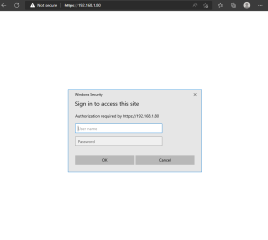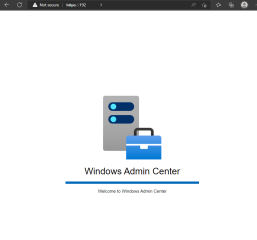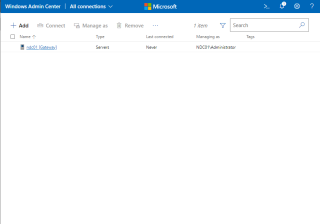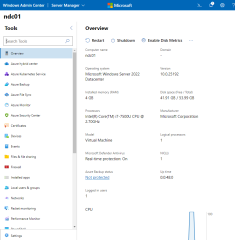Hello World,
In our previous post, we have quickly provided a quick overview of the Windows Admin Center (WAC) software solution provided by Microsoft. Windows Admin Center is a web based administration tool that allows sysadmins to perform their day to day jobs when working in a Windows based network. Microsoft sells this tool as the next iteration of Server Manager and MMC tools since the tool provides a new way of managing the infrastructure
In this post, we will provide a quick step by step guide on how to perform a simple installation of the Windows Admin Center…
Let’s do this !
Overview
More and more companies are moving into Core Editions because it’s more secure but because it has also a smaller footprint and can be patched more quickly as well. However, not everyone is comfortable with Core editions where administration is done through Command line. To overcome this situation, Windows Admin Center can help traditional windows sysadmins to move forward and accept to have more Windows core editions servers running on their network.
The move to core edition Server is driven by the current economical situation. Indeed, Shortage of chips, hardware price increase, availability of hardware components pushes companies to do more with less. To optimize resources, companies have started strong consolidation of their IT Infrastructure, chasing ghost and unused machines. Another approach also consists of replacing classical admin Remote Desktop Servers which has can be expansive (RDS CAL Licensing) and deploy Windows Admin Center Server which is free and also require a smaller foot print.
This post will assume that Windows Admin Center Software will be installed on a Core Edition Server and that Windows Admin Center will be installed in a Gateway configuration mode. This mode will allow a windows admin user to add more servers into the web interface and manage from this central web interface multiple servers available on the network.
click on picture for better resolution – Source : Microsoft – Check this page
Step by Step Installation
Step 0 – Install Windows 2022 Server Core Edition
In order to install Windows Admin Center on top of a Core Server, you will need to first install Windows on a server. This can be a physical machine or a virtual machine. We assume that the server will member of an Active Directory Forest/Domain. To perform a Windows 2022 Core Edition, you can follow the steps provided in our blog to install Windows 2019 Core Edition. The process is exactly identical.
Step 1 – Download the Windows Admin tools
You will need to obtain the Windows Admin Center software binaries. You can obtain them by visiting Microsoft web site (https://www.microsoft.com/en-us/windows-server/windows-admin-center) and download the package to your computer and then transfer it to the Windows Core Edition server that will be hosting the Windows Admin Center
You can also download the package directly from your Windows Core Edition server if it’s connected to the internet. You will need to go the the Windows PowerShell Console and issue the following command
Invoke-WebRequest -Uri https://go.microsoft.com/fwlink/p/?linkid=2194936 -UserBasicParsing -outfile windowsAdminCenter-xxx.msi
Step 2 – Start the Installation process
After downloading the windows admin center msi package, go to the directory where the file is located, and start the installation process. You will see the Welcome Page of the Installation Wizard. When ready, click on Next
click on picture for better resolution
In the License Agreement page, accept the Agreements and Press Next
click on picture for better resolution
In the Send Data Page, specify your choice and Press Next
click on picture for better resolution
In the Update Page, select the option that fits your organization and Press Next
click on picture for better resolution
In the Install Page, Review the information provided and Press Next
click on picture for better resolution
In the Install Page, Select the options that fits your needs and your security Policy. The options below are usually the standard one used for installing Windows Admin Center
click on picture for better resolution
Note : We have not checked the WinRM over HTTPS only because in our lab and in this scenario, we will be using a self signed certificates
In the Next Page, specify the port to be used (443 is a good option) and we would recommend you to select the option to redirect any HTTP to HTTPS
click on picture for better resolution
Wait for the installation to complete
click on picture for better resolution
In the Summary page, review your settings and Click Finish
click on picture for better resolution
Step 3 – Test your installation and access your WAC
Finally, it’s time to try your newly installed Windows Admin Center. You will open your “favorite browser” even if Microsoft recommends you to use Edge. In Edge, provide the url address of the Windows Admin center and see what’s happening
You might get prompted for some credentials
click on picture for better resolution
If everything is ok, you will see the Windows Admin Center page loading
click on picture for better resolution
You will see in the main page, the server that is hosting the Windows Admin Center. Obviously, you will have now to add servers that needs to be managed into this console and you will be able to access them
click on picture for better resolution
Since we have just performed the installation, by clicking on the server hosting WAC, you will access a new page that will allow you to perform all necessary administration tasks on a server through a simple Web Browser
click on picture for better resolution
Final Notes
This is it for this post !
At this stage, you should have a working installation of Windows Admin Center in Gateway mode. It’s time for you to see all the options that are available through the web interface and see how you can add additional servers to be managed. The Tool is really user friendly, not to difficult to use and you can also have access to PowerShell or Remote Desktop, from the browser… WAC can help moving from a traditional way of managing servers (via RDP mainly) into a web interface or even through command line (CLI)
We might publish some posts about Windows Admin Center to get even more information and configuration tips… but not sure. We need to start working on other topics as well….
Till next time
See ya
